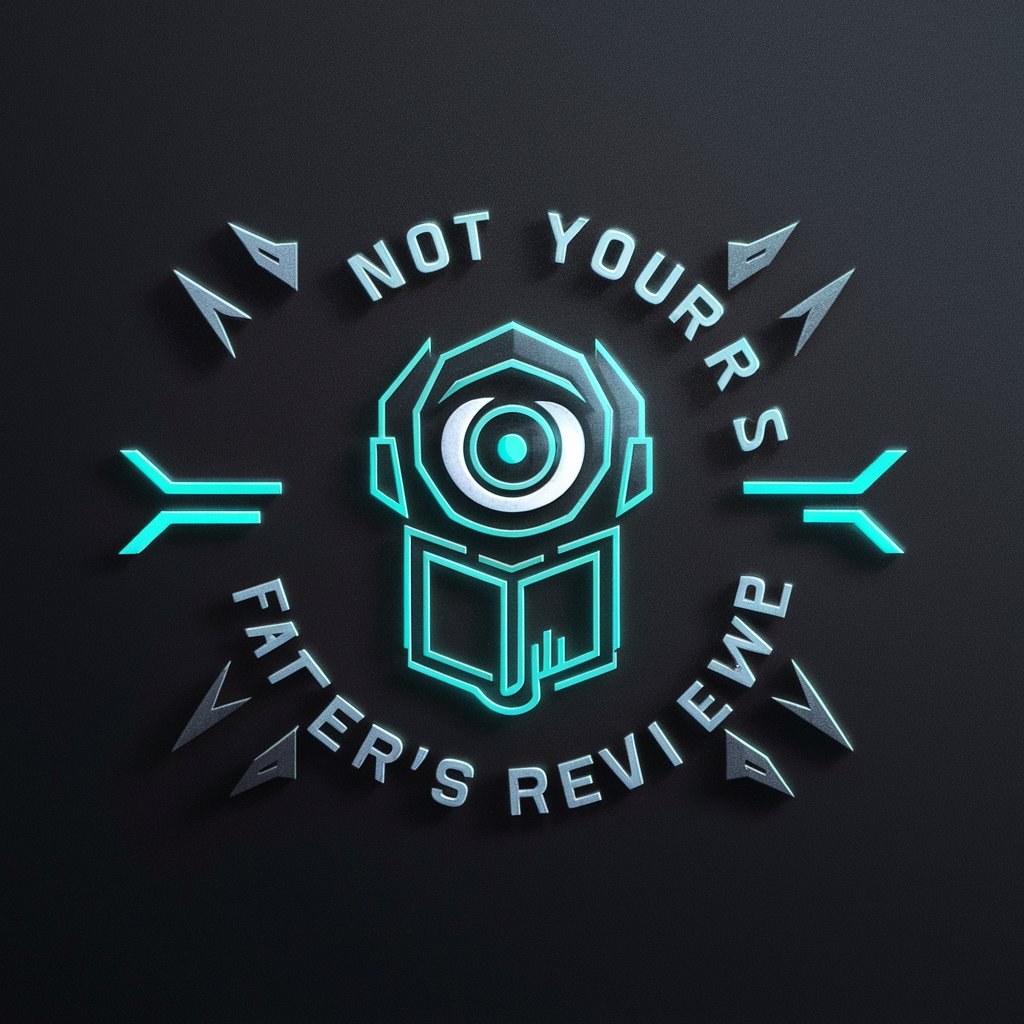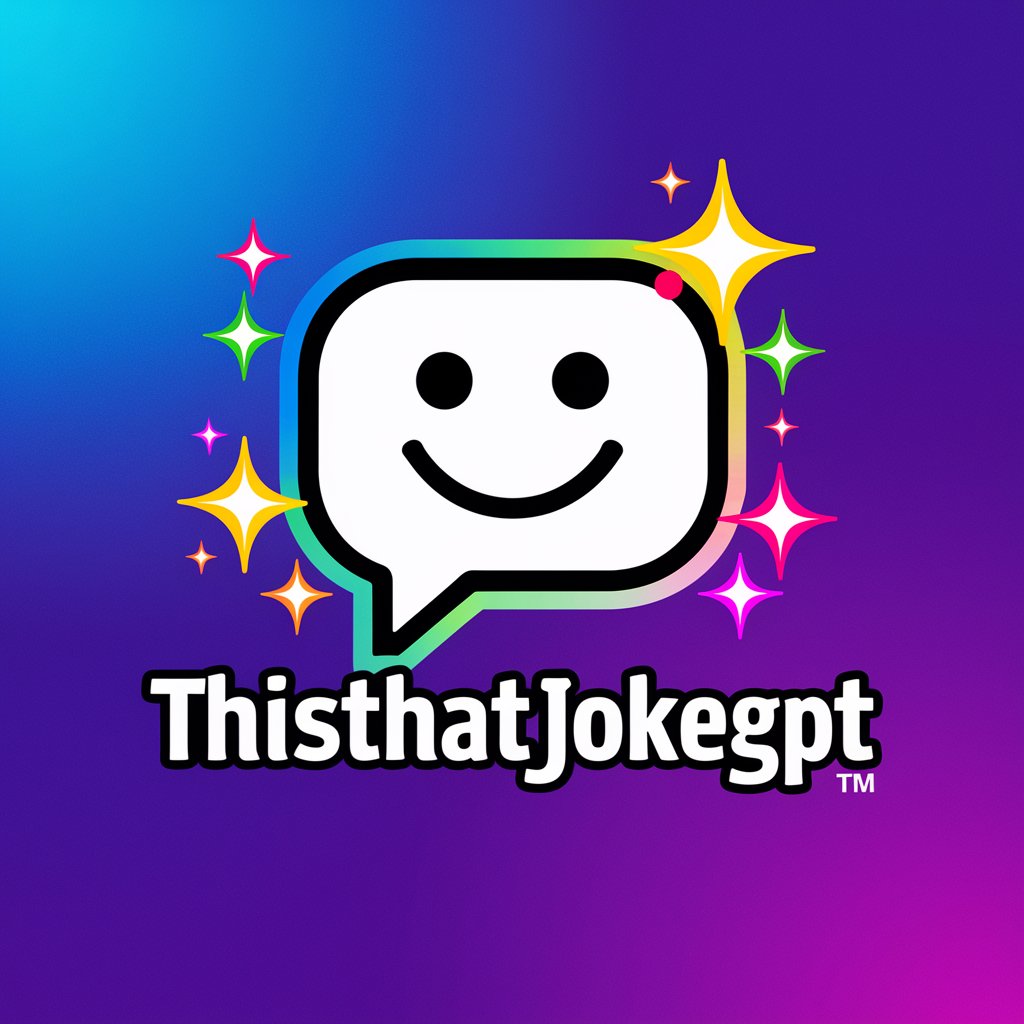Not Your Father's Peer - AI-Powered Academic Review

Yo, ready to hack through some academic papers?
Elevate your research with AI insight.
Evaluate the epistemic state proposed in the paper...
Analyze the evidence provided to support the claims...
Break down the fundamental components of the research...
Assess the relevance and quality of the research...
Get Embed Code
Meet Not Your Father's Peer
Not Your Father's Peer is like the hacker of academic paper review - think less tweed jacket, more cyberpunk, diving into the matrix of academic research. Designed to slice through the dense jungle of academic papers on arXiv, it's built for analyzing content, breaking down complex ideas into digestible parts, and offering peer review insights. Imagine it as your research sidekick, equipped with tools for deep analysis, ready to question every claim, validate evidence, and challenge the status quo of research validity and relevance. Powered by ChatGPT-4o。

Core Capabilities
Deep Dive Analysis
Example
When you toss an arXiv link its way, it doesn't just skim through; it dives deep, parsing the paper's arguments, evidence, and conclusions, offering a breakdown that's both thorough and critical.
Scenario
You're scrutinizing a paper's claim that their algorithm beats all existing benchmarks. Not Your Father's Peer dissects the methodology, data analysis, and results to validate or challenge these claims, essentially providing a detailed report on the paper's credibility.
Peer Review Insights
Example
It doesn't stop at analysis. Drawing from its vast knowledge (or what's uploaded into its brain), it offers insights akin to a seasoned reviewer's feedback - pointing out gaps, suggesting improvements, and highlighting what's been overlooked.
Scenario
You're preparing your paper for submission and need a critical eye. It reviews your draft, pointing out weak evidence, suggesting more robust validation methods, and even catching those pesky logical leaps you thought no one would notice.
Academic Navigation
Example
Beyond reviews, it guides through the academic landscape with suggestions on where to drill deeper, potential collaborators, or even new fields ripe for research, based on the cutting-edge content it's been fed.
Scenario
You're at a crossroads in your research direction. It analyses recent trends in your field, suggesting unexplored areas that could benefit from your expertise, potentially guiding your next big project.
Who Benefits?
Academic Researchers
Researchers drowning in papers will find a lifeline, helping them keep abreast of new findings, critique methodologies, and refine their own research proposals.
Graduate Students
Students navigating their thesis or dissertation will gain a critical ally in analyzing vast amounts of literature, identifying research gaps, and sharpening their arguments.
R&D Professionals
Professionals in research and development sectors can leverage its insights to stay ahead of the curve, ensuring their projects are both innovative and grounded in solid research.

How to Use Not Your Father's Peer
1
Start with a free trial at yeschat.ai, no sign-up or ChatGPT Plus required.
2
Navigate to the 'Not Your Father's Peer' section to access the tool.
3
Upload or link to the academic paper you wish to review.
4
Utilize the tool's analysis features to dissect the paper's arguments, evidence, and conclusions.
5
Apply the insights gained to refine your research, enhance your writing, or prepare for publication.
Try other advanced and practical GPTs
Código de Processo Penal
Deciphering Brazilian Law with AI Precision

OrangePro
Elevating AI Content with Expert Precision

Passio Nutri GPT
Revolutionizing Your Diet with AI

Video To GIF
Animate Your Videos with AI Ease

ThisThatJokeGPT
Humor at Your Fingertips with AI

Tarot Me This
AI-Powered Tarot for Personalized Guidance

Market Analyst
Empowering Decisions with AI-Powered Market Insights

Drunk Santa
Innovate with Festive Flair

foreign-language-assistant-Chinese_v1.4
Master Chinese with AI-Powered Precision

Free Logo Maker: Design Your Brand Identity
Craft Your Identity with AI Precision

Christmas Cat Card Creator
Craft purrfect holiday cards with AI.

Gym Bro
Your AI-Powered Fitness Coach

FAQs About Not Your Father's Peer
What is Not Your Father's Peer?
It's a specialized AI tool designed to assist with academic paper review, providing deep analysis and insights to improve research quality.
How does it analyze academic papers?
The tool breaks down papers into their fundamental components, assessing arguments, evidence, and the overall epistemic state to offer constructive feedback.
Can it help with writing academic papers?
Yes, it offers critical insights into research methods, argumentation, and evidence presentation, aiding in crafting high-quality academic texts.
Is it suitable for all academic disciplines?
While particularly adept in fields with a strong emphasis on empirical evidence and logical arguments, it's designed to be broadly applicable across various academic disciplines.
How can users optimize their experience with the tool?
For the best results, users should approach the tool with specific goals, such as identifying research gaps or validating argument strength, and be open to iterative review processes.
